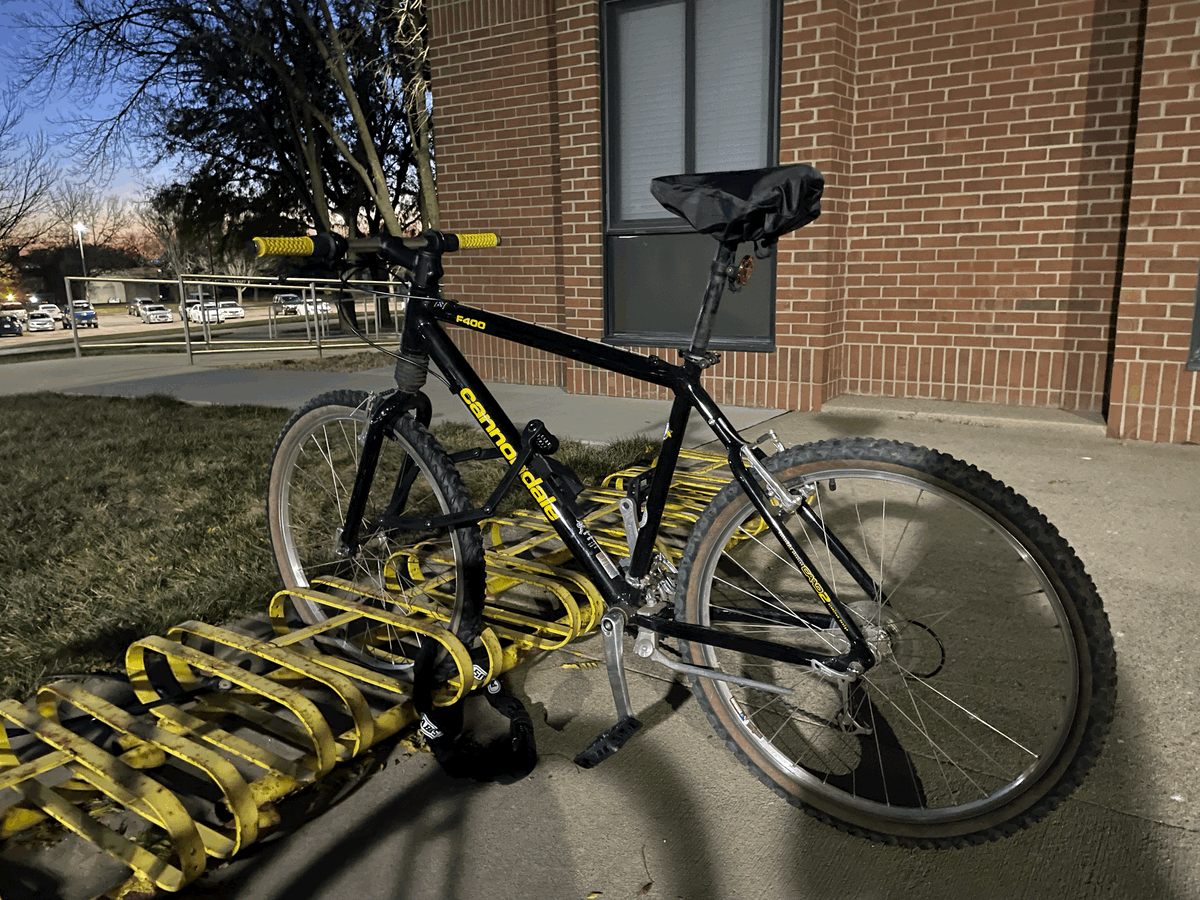Bikers beware: Bicycle theft on the rise

It was a brisk October morning on campus. Senior Kaylee Frye had finished class and was ready for a bike ride. Approaching the bicycle rack outside of the Froiland Science Center, she was surprised to find her helmet nearly 20 yards in the opposite direction. More importantly, there was no bike.
Despite securing her bike with a combination lock the night before, Frye fell victim to theft. She reported the incident to campus safety, and her case found a home among the growing stack of reports on Associate Vice President of Campus Safety & Logistics Rick Tupper’s desk.
“All of this was just in the past week,” an exasperated Tupper said, gesturing to the pile.
Not long ago, he had received security footage of a man armed with bolt cutters stealing a bike. It only took seven seconds for him to snip the lock and disappear out of view of the cameras.
Bike theft has always been an issue on campus but has surged in the past year, alongside car theft. Tupper attributes this increase to Sioux Falls’s population growth and Augustana being located near the city center.
In the past, bikes were targeted for their value. This year, thieves are stealing anything they can get their hands on, Tupper said.
No bikes have been recovered so far, which is disappointing for students like Frye. Before the theft, she biked whenever possible and rarely drove her car if she could help it.
“It definitely is a bummer,” Frye said. “It was a nice bike I rode for thousands of miles over the years.”
Senior Grishma KC found herself in a similar situation in late September. She had been borrowing a friend’s bike to get around Sioux Falls when it was stolen. Like Frye, she always made sure to lock the bike.
Tupper suggests that students invest in higher quality locks but understands that it might not be worthwhile if the lock is too expensive. Some students might not want to buy a $50 bike lock for their $50 bike, he said.
“It depends on the value,” Tupper added. “For some students, that’s their only means of transportation, so it’s a big deal for them.”
KC is one of these students. She doesn’t own a car, and she used the bike to run errands. Unlike Frye, KC did not report the incident to Campus Safety. She was disappointed that she had not been made aware of the rising thefts on campus.
“Imagine finding out that your bike got stolen on Yik Yak,” KC said, referring to a post made on the social media platform regarding the recent crimes.
Both Frye and KC wish there were more preventative measures in place. For example, Frye asked Campus Safety about possible footage of the theft but was told it would be no help due to the location of her bike at the time.
Tupper explains that not much can be done until suspects can be identified, and that isn’t always possible, even with the best footage. Tupper said Campus Safety does its best to coordinate with the police department to track thefts and share intelligence.
“We have officers watching parking lots and bike areas, but you have to be there at the right time,” Tupper said.
He encourages students to remain vigilant and report any suspicious behavior on campus to help prevent more theft.



